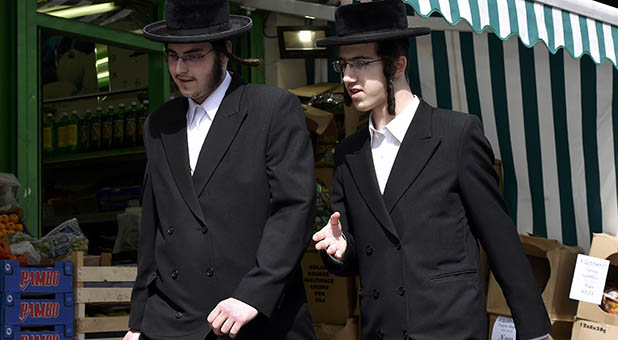Never forget.
It’s a phrase that has become synonymous with the Holocaust.
It’s a phrase that promotes solidarity, in an attempt to prevent history from repeating itself. It’s a phrase that fosters unity, in bringing together anyone and everyone affected from Jew to Gentile. It’s a phrase that creates defiance, in rising up against all acts of terror and genocide.
Seventy-one years later, the phrase “never forget” has generated an unspoken comfort among many who join together to reassure ourselves that we’ll always remember the horrific events of the Holocaust, while equally paying tribute to the survivors who have allowed us to continue to thrive until today.
But what happens when survivors don’t want to remember the things we’re told to “never forget?”
The reticence and reluctance of survivors to speak about the Holocaust pushes against the very notion of “never forget.” In fact, it’s the antithesis of “never forget.” It’s an idea that has pervaded my mind ever since I began working on “The Podkamieners,” a six-part docu-series on my family’s experiences in the Holocaust.
I recognized it immediately during the first interview that I conducted with my cousin Mark, now 85 and flippant as ever. When asked how his children have reacted to him being a survivor, he responded that he simply told them to “forget it.”
Forget it. The very idea that we should forget about the Holocaust feels inherently uncomfortable, dishonorable and just morally wrong. We talk about the Holocaust, but we never talk about not talking about the Holocaust. And why would we? We’ve been indoctrinated with the concept of “never forget,” we commemorate an annual Holocaust Remembrance Day, and we’ve been inundated by Holocaust literature, imagery, films and a plethora of other genocidal media paraphernalia up to a point where we have become nearly desensitized. In short, the Holocaust has become commonplace.
The Holocaust should never become commonplace, nor should any other act of genocide (though we’d be remiss in not recognizing that it has become all too common). My project made me realize that recognizing a survivor’s unwillingness to speak about his or her experiences bridges the gap between “universal” and “unique” when it comes to understanding the events of the Holocaust. And while it’s not the main objective of my film series, it’s certainly a strong subtext that shifted these six films from a place of reticence to relevance.
Out of the five survivors who I interviewed, four had barely—or in some cases never—spoken about their experiences before in any personal or public forum, my cousin Mark falling under the “never” category. That’s on a micro scale, but considering the extent of endless future generations as well as other survivors with a similar mentality, that micro scale can have a macro effect. I’ve seen that effect already take shape in my own mother and uncle, children of survivors who acknowledge that their childhood was shrouded by the cloud of the Holocaust and yet admit that they only have a superficial understanding of what their parents had truly endured.
Understanding why survivors have stayed silent about the Holocaust opened up a conversation that in turn allowed my family members to share their experiences. I know that I would not have been able to capture these stories if I did not recognize and respect these sensitivities. Thankfully, I did. And with it, I learned that among my family members, there was a strong desire to simply “move on”—though there’s nothing simple about it. They didn’t want praise for their survival or pity for their struggles. They just wanted to live a normal life and look forward.
These are not outlandish or surprising sentiments by any means—it’s understandable that people who experience trauma wouldn’t want to talk about that trauma, especially to this unfathomable degree. Rather, it’s about acknowledging, respecting and validating these feelings to ultimately gain a better understanding and sensitivity to both survivors and to the Holocaust.
Instead of just talking about the Holocaust, it’s time for us to listen, even through the silence. And if we truly listen, then we’ll always remember why we should never forget. {eoa}
This article originally published at jns.org.
Sarah Kamaras is an independent filmmaker living in New York City and the grandchild of Holocaust survivors.
See an error in this article?
To contact us or to submit an article






















